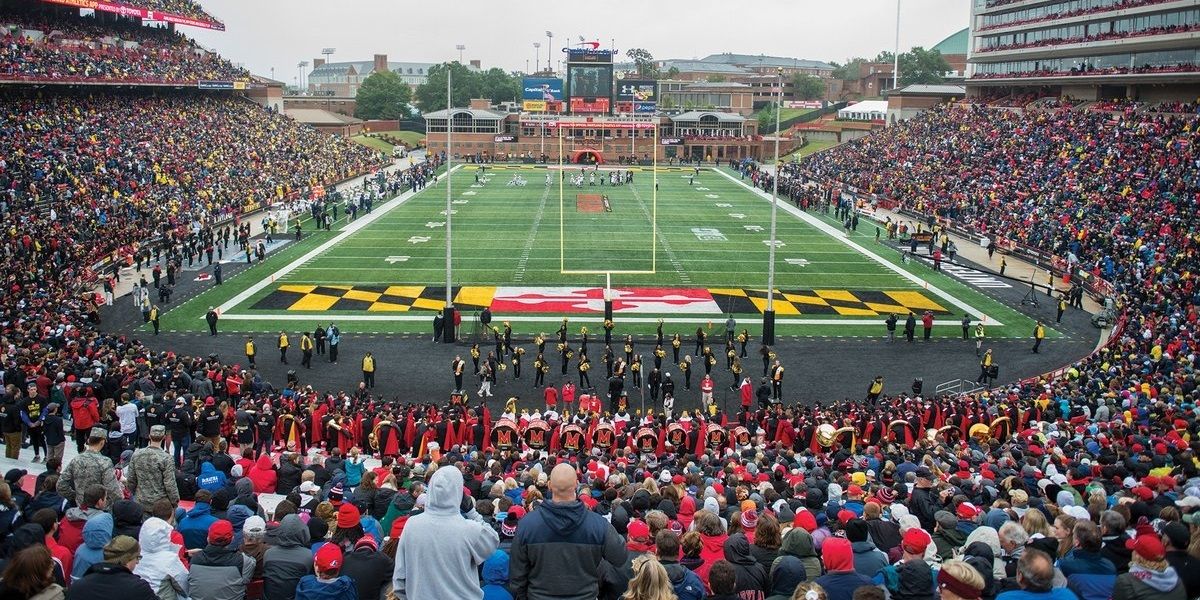Views expressed in opinion columns are the author’s own.
Thursday’s “Justice for Jordan” rally was marked by serious dispute over what exactly “justice” looks like in the wake of DJ Durkin’s firing. One of the main points of contention was how the student body should interact with the football program in the immediate future. The organizers of the rally stressed the need to support the players on the team and encouraged mass attendance at football games as a means of doing so, while various counter-protesters called for a boycott of the games and demanded further changes in the program’s leadership and personnel.
This is a non-trivial, nuanced issue, and the middle of a public rally was a particularly poor place to discuss it. An opinion column is a slightly better place, so I’ll present the arguments for full-throated support of the team and for a boycott — and try to arrive at some conclusion as to how students should proceed.
The argument in favor of attendance is primarily one of empathy: The players on the football team have had to deal with the death of a teammate and the subsequent media blitz and multi-pronged investigation, ensuring the wound remained raw.
If this wasn’t enough to engender a creeping sense that this university doesn’t care about its football players as individuals, the notoriously poor attendance from the student body at football games probably does the trick. Indeed, it appears the SGA arrived at their plan of action largely by consulting the football players and asking what would be best for them right now, and the response was increased attendance at games. The pro-attendance argument thus asserts that, in order to show solidarity, respect the wishes of the team and help them heal, we should attend football games en masse.
The opposing argument points to the numerous people involved with or complicit in Jordan McNair’s death who remain part of the program as rationale for a boycott. Most notable among these are athletic director Damon Evans, whose lack of oversight enabled the “toxic culture” we’ve learned so much about in the past few months, and trainers Steve Nordwall and Wes Robinson, who were directly responsible for failing to give McNair the treatment that would have saved his life.
The pro-boycott argument asserts that attending games is implicitly supporting these and others who contributed to the culture that clearly must change, and so we shouldn’t offer that support until the culture (and thus the leadership and staff) does change.
I think there is widespread agreement that we should support the football players in some way and we shouldn’t support the elements of the program that contributed to the “toxic culture.” The disagreement comes in determining whether attending or boycotting games supports toxicity or fails to support players. On its face, simply going to the games as one normally might appears to support the entire program, players and toxic elements alike. Similarly, boycotting the games appears to be a rejection both of the players and the staff. What, then, should a concerned student do?
There are morally acceptable routes that go both ways, but both require a bit more effort. Students who attend the games should make explicitly clear they are doing so in support of only the players, not the staff. This might be through the use of signs, or chants, or some other coordinated action, but merely going to the game is not sufficient. Students should avoid buying concessions or otherwise lending additional monetary support to the program in ways that don’t directly benefit the players.
Note that the acceptability of this path is predicated on the fact that students have in effect already paid for their football tickets through the mandatory athletic fee, and so are not contributing any additional financial support to the program by attending the games. If the SGA resolution allowing students to opt out of this fee takes effect, there may not be an acceptable way to attend the games.
Similarly, students who wish to boycott the games for the purpose of enacting change should have organized, clearly defined demands for the administration (e.g. the dismissal of Evans, Nordwall and Robinson) and should be vocal about the connection between their lack of attendance and the lack of fulfillment of those demands. Simply refusing to attend games without this sort of clarity risks further alienating the players who suffered quite enough as it is.
Reasonable people can disagree as to the best way to support student athletes while protesting a toxic culture. What is clear is that the response should be nuanced and purposeful and should take great care to avoid doing further harm. Either attendance with caveat or boycott with limitations meets these criteria.
Joey Marcellino is a senior jazz saxophone, physics and philosophy major. He can be reached at fmarcel1@terpmail.umd.edu.



